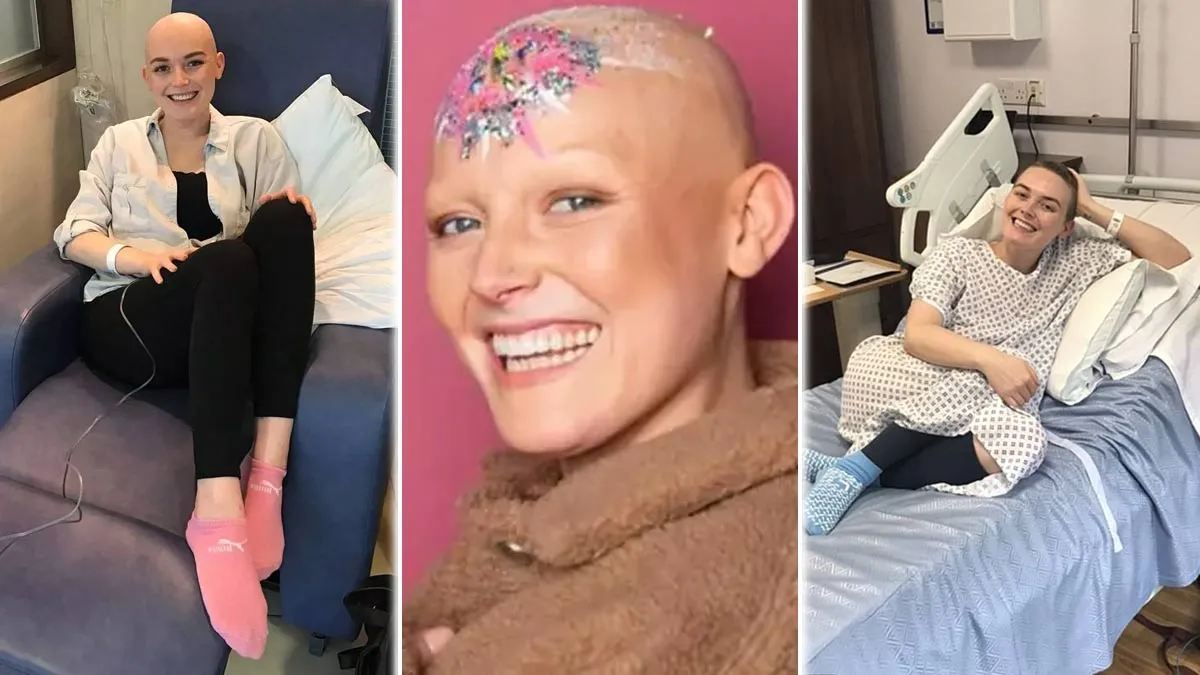
Georgie Swallow's experience with Stage 4 Hodgkin lymphoma underscores the vital need for recognising symptoms and obtaining prompt medical care. At just 28 years old, she faced the harsh reality of an advanced cancer diagnosis, one that could have potentially been avoided with earlier intervention.
Table of Content:-
Hodgkin lymphoma targets the lymphatic system and poses significant challenges, particularly when detected at a later stage. Read ahead to delve deeper into the medical condition, exploring how Georgie initially overlooked her symptoms and the implications of late-stage diagnosis.
“I Would Itch Until I Broke the Skin” Georgie Swallow on Ignoring the Symptoms
Georgie Swallow remembers the relentless itching that left her skin raw. She recounted, "I would scratch until I broke the skin, which kept me awake all night. When I consulted a doctor, they suggested it might be stress, allergies, or urticaria, but no cream or lifestyle changes seemed to help." Despite experiencing troubling symptoms, she continued to minimise the seriousness of her condition: "During this time, I was losing weight, suffering from night sweats, constantly exhausted, and dealing with an unending cycle of colds and flu,” she added, assuming that she was just overexerting herself.
What Is Stage 4 Hodgkin Lymphoma?
-1736331069707.jpg)
Hodgkin lymphoma, also known as Hodgkin disease, is a type of cancer that originates in the lymphatic system. Stage 4 is the most advanced form which occurs when the disease spreads beyond the lymphatic system to other organs, such as the liver, lungs, or bone marrow. Dr Naresh Somani, Director Oncology and Senior Consultant Medical Oncology, at HCG Cancer Centre Jaipur explains it as a cancer that typically grows in the bone marrow cells or B cells. Characterised by the presence of abnormal cells known as Reed-Sternberg cells, it can lead to symptoms such as swollen lymph nodes, fever, night sweats, and unexplained weight loss.
ALSO READ: What is the Recommended Age for Receiving the HPV Vaccine? Is It Effective For Adults Over 26?
Symptoms Of Stage 4 Hodgkin lymphoma
This type of cancer presents a variety of symptoms that can vary among individuals. The most common initial sign is painless swelling of lymph nodes, typically found in the neck, armpits, or groin. Some of the other notable symptoms include the following.
- Drenching night sweats: Excessive sweating during sleep that may soak clothing and bedding.
- Unexplained weight loss: Losing more than 10% of body weight over six months without trying.
- Persistent fatigue: A constant feeling of tiredness that does not improve with rest.
- Fever and chills: Unexplained fevers that come and go.
- Itchy skin: Generalized itching without a clear cause.
- Decreased appetite: A noticeable reduction in the desire to eat.
- Coughing or shortness of breath: These symptoms may arise if lymph nodes in the chest become enlarged.
- Abdominal discomfort: Pain or a feeling of fullness due to an enlarged spleen or liver.
Stage 4 Hodgkin Lymphoma Treatment
Treatment for Hodgkin lymphoma typically involves a combination of chemotherapy and possibly radiation therapy. It is tailored to the individual’s specific condition and overall health. Some of them are mentioned below.
- ABVD: This is the most frequently used regimen, comprising doxorubicin, bleomycin, vinblastine, and dacarbazine.
- Brentuximab vedotin: A targeted therapy option for patients who do not respond to standard chemotherapy.
- Nivolumab: An immunotherapy treatment that utilizes the body’s immune system to combat cancer cells.
- Radiation Therapy: Often recommended after chemotherapy, especially for patients with large tumours or residual disease observed in follow-up scans.
- Stem Cell Transplant: For patients whose Hodgkin lymphoma does not respond adequately to initial treatments, high-dose chemotherapy followed by a stem cell transplant may be necessary.
Conclusion
Stage 4 Hodgkin lymphoma is the most advanced form of this cancer as it spreads beyond the lymphatic system to organs like the liver, lungs, or bone marrow. Early detection and personalised treatment are key to improving outcomes and quality of life for those affected by this disease. If you have symptoms, it is advised to consult the doctor at the earliest.
Also watch this video
How we keep this article up to date:
We work with experts and keep a close eye on the latest in health and wellness. Whenever there is a new research or helpful information, we update our articles with accurate and useful advice.
Current Version